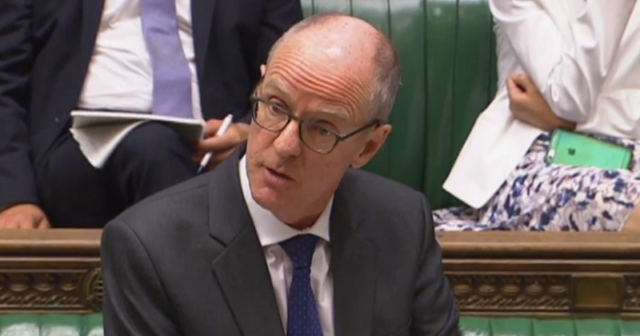The government has approved just one textbook as part of its £41 million maths mastery programme – falling short of expectations that more than three would be available for schools.
Schools are able to claim match-funding up to £2,000 to purchase textbooks under the scheme, which is an attempt to introduce whole-class maths teaching based on the south Asian ‘mastery’ model.
But only one book, called Maths – No Problem! met the Department for Education’s criteria, leaving it as the only one included on the official list of approved textbooks for teaching the mastery model.
Schools Week understands this falls short of the education community’s expectations, with one source saying that around four or five textbooks were expected to be approved.
Kate Moore, head of communications at Maths – No Problem!, admitted she had been so shocked to find her book the only one on the list that she called up the DfE to double-check it was correct.
“The DfE has been engaging with publishers for the past three years to get them to improve the quality of textbooks so I am surprised that nobody else has made the grade,” she said.
I was so shocked I called up the DfE to double-check it was correct
However the DfE said there will be another review panel process for further books to win approval ahead of the 2017-18 academic year, and that the list of recommended textbooks would be updated subsequently.
Moore said the approval process was “incredibly rigorous”, with publishers having to submit 50 pages of evidence.
Textbooks were submitted for consideration in this year’s spring term, and critical criteria that publishers had to meet included books that covered every primary year group, and that reflected a teaching-for-mastery approach where pupils “progress together”.
They had to include teacher manuals with curriculum content and pedagogical guidance, and hard-copy pupil textbooks with practice exercises integrated into pupil resources.
Martin Casimir, managing director of Maths – No Problem!, said ministers know “they have to set the bar high and acknowledge the need for really high-quality resources”.
A “mish-mash” of approaches “just doesn’t work”, he claimed.
“It’s got to be a wholesale change to maths teaching, with the whole school trained in the pedagogy and the right resources.”
However some teachers have been critical on Twitter about the textbook’s cost: it costs a school £1,015 to buy the system’s textbooks, workbooks, and online teaching resources for a single class of 30.
A year 6 teacher said the product has “huge start-up costs”, and Alex Rawlings, a primary school deputy headteacher, tweeted that the product is “entirely unfeasible” within his school’s budget.
“We are being priced out of accessing a DfE approved product,” he wrote.
Others pointed out that match-funding was available to help out with costs, but Michael Tidd, a deputy headteacher at Edgewood Primary School in Nottinghamshire, said the £2,000 was a “fraction of the total cost” of using Maths – No Problem! with “year-on-year costs”.
Moore claimed the price “reflects our investment” in developing the programme, working with the world’s “best maths authors from Singapore”, and the “ongoing development of our online training and teacher-support materials which enable teachers who aren’t subject specialists to teach maths with confidence”.
She added: “Schools tell us that the books pay for themselves compared to the cost of teachers researching and creating maths worksheets from scratch, time spent planning maths lessons, the cost of photocopying worksheets and so on. But more importantly, feedback from our users is that the programme works.”

There were roughly 1,000 schools participating in the teaching for mastery programme in 2016-17. They now have until the end of December this year to make new bids for their £2,000 textbook match-funding.
Last summer, schools minister Nick Gibb announced funding of £41 million over four years to support teaching maths for mastery in 8,000 primary schools in England.
The government expects an initial 700 teachers to be trained in the model, which is also known as ‘Shanghai maths’, who, it is hoped, will then share their knowledge with others across the system.
The approach involves whole-class teaching and taking pupils of all abilities through calculations in minute detail. Gibb claims to have influenced Shanghai pupils’ high achievements in international maths tests.
The DfE was approached for further comment.







The EEF evaluation of maths mastery (link to ‘related projects’ here https://educationendowmentfoundation.org.uk/resources/teaching-learning-toolkit/mastery-learning/) said pupils in schools adopting maths mastery made ‘a small amount more progress’ ie one month. This was ‘statistically significant’ indicating the small improvement was down to maths mastery.
The EEF concluded ‘Given the low per-pupil cost, Mathematics Mastery may represent a cost-effective change for schools to consider.’ But it appears it’s no longer ‘low per-pupil’ cost.
The Government should not be pushing one method alone, and certainly not just one textbook, when the gains are so small and other methods (eg peer tutoring, collaborative learning) had greater effects according to EEF.
The Maths No Problems Primary Series are some of the most expensive available. They are very good but to not offer example solutions /answer books to parents /home educators for no obvious reason is very frustrating. You are not even allowed to buy an answer book. I do not honestly think I have ever encountered a maths workbook without model answers either in the back or as an add on.